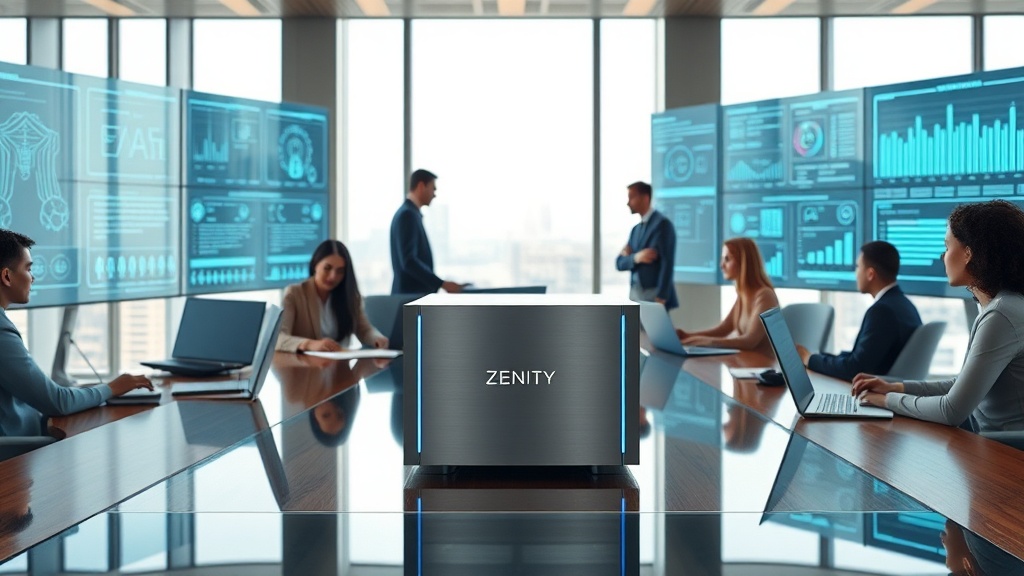
The Dawn of AI Agents: How Cloud, Security, and Marketing are Shaping a New Era of the Internet
Artificial intelligence isn’t just some background process humming away on servers anymore. It’s become the driving force behind what looks like a completely new digital era. In 2025, we’re watching AI agents take over everything from factory operations to your online shopping experience. These autonomous programs can plan, reason, and act with minimal human oversight.
What we’re seeing isn’t just incremental progress. It’s a fundamental shift toward an internet that operates more like a complex hive mind. Cloud providers, security companies, marketers, and industrial giants are all racing to figure out what comes next in this space.
AI Agents: The Web’s Newest Citizens
Guillermo Rauch, who runs Vercel, has an interesting take on where this is all heading. He thinks the future internet will basically be a sprawling network run by AI agents. His vision? Every piece of software becomes AI native, making agents the new fundamental building blocks of cloud computing.
Vercel’s already preparing for this shift by developing what they call the “AI cloud.” It’s infrastructure specifically designed to host and orchestrate these increasingly autonomous digital workers. Think of it as a rethinking of cloud architecture where static applications give way to intelligent, self-operating agents that can respond dynamically to user needs and changing data environments.
Jeanne DeWitt Grosser, Vercel’s COO, shared something pretty fascinating about their approach. They’re training AI agents on the workflows of top human performers. This isn’t just about automating routine tasks. These agents are learning best practices, creativity, and contextual decision-making from high-achieving individuals. The result? Software that gets more adaptive and competent the longer it runs.
AI Goes to Work: Industrial Transformation
This isn’t just theoretical stuff. Real industrial operations are already running on autonomous AI agents. At Saudi Arabia’s Fadhili Gas Plant, Aramco and Yokogawa have deployed multiple autonomous control AI agents that optimize gas removal operations.
They’re using reinforcement learning algorithms, specifically something called Factorial Kernel Dynamic Policy Programming (FKDPP). These AI agents make real-time decisions to improve efficiency and safety in complex industrial systems. For the first time, crucial plant processes are being controlled autonomously. This shows how AI agents are ready to handle mission-critical environments where reliability isn’t negotiable.
This milestone signals way more than just operational efficiency gains. It’s a fundamental shift in how large-scale infrastructure gets managed worldwide. The implications for edge computing and industrial IoT are massive.
Security and Governance: A New Frontier
Here’s the thing about giving AI agents more independence: it comes with serious risks. As these agents take on more responsibility across cloud platforms, SaaS applications, and corporate endpoints, keeping them secure becomes critical.
Enter Zenity, which just got named a top InfoSec innovator for 2025 for its security and governance platform built specifically for AI agents. Their platform provides end-to-end controls that can govern and audit AI agents in real-time. It ensures these constantly learning programs comply with organizational policies while defending against evolving cyber threats.
Zenity won the “Agentic AI Security Solution of the Year” award, which shows how the emergence of autonomous agents is driving parallel evolution in cybersecurity. This matters because businesses need to balance innovation with transparency, accountability, and robust security as they lean into agent-powered systems.
For crypto and DeFi protocols, this kind of security infrastructure could be crucial. Imagine AI agents managing yield farming strategies or executing complex DeFi trades while maintaining compliance with evolving regulations.

The Rise of AI-Native Marketing
The marketing world is getting turned upside down by AI agents. As bots increasingly browse the internet and make purchases on users’ behalf, traditional SEO is morphing into something entirely new: generative engine optimization (GEO).
The Prompting Company just raised $6.5M to help products get mentioned in leading AI applications like ChatGPT. This Y Combinator startup is pioneering strategies that optimize for agents acting as digital concierges, filtering and recommending products based on user preferences and real-time context.
Think about it: instead of focusing solely on how humans discover goods and services, marketers now need to optimize for AI agents. In this new model, AI agents might become the default starting point for product discovery and purchase decisions.
This shift has huge implications for crypto projects. How do you get your DeFi protocol or NFT marketplace noticed by AI agents that are filtering information for users? The Prompting Company’s bet is that understanding how to market to the agents themselves could prove as vital as direct-to-human outreach was in the early days of digital marketing.
Advertising in the Agent-Driven Internet
The advertising world isn’t sitting this out either. Companies like AdsGency AI are taking bold steps toward a future where advertising platforms operate as agentic operating systems. Bolbi Liu, the 29-year-old founder and CEO, envisions a landscape where advertisers and publishers interact through networks of intelligent agents.
AdsGency AI aims to serve as both supply-side and demand-side platform, allowing autonomous agents to negotiate, serve, and target ads efficiently. Liu’s vision extends to an ad ecosystem where campaigns are designed for, and even managed by, AI agents.
This could democratize access to sophisticated ad technologies, empowering everyone from small businesses to Fortune 500 enterprises. With younger founders driving innovation in this space, the pace of change will only accelerate. For crypto startups and Web3 projects, this presents both opportunities and challenges in reaching their target audiences.
Looking Ahead: The Dawn of an Agentic Web
We’re watching the fabric of the internet get rewoven in real-time. Cloud providers are racing to host the next generation of AI-powered software. Industrial operations are becoming more intelligent and independent. New security paradigms are emerging to govern it all. Meanwhile, marketers and advertisers are quickly adapting to engage not just people, but the legions of AI agents acting on their behalf.
This convergence points to a future where the web becomes less of a passive platform and more of an active, adaptive organism. For developers and tech leaders, embracing this shift isn’t optional. Those who understand how to harness, secure, and market within this emerging world of agents will help define the digital landscape for years to come.
What does this mean for crypto and blockchain? AI agents could revolutionize everything from automated trading strategies to DAO governance. Imagine AI agents managing liquidity pools, executing arbitrage opportunities across DEXs, or even participating in governance votes based on predefined parameters.
We’re at the dawn of the agentic internet. The coming years will show us just how transformative and disruptive this new era will be. For investors, developers, and users in the crypto space, staying ahead of these trends could make the difference between leading the next wave of innovation or getting left behind.
Sources
-
The web is becoming a sprawling hive mind of AI agents, and Vercel wants to build a cloud to host them, Business Insider, October 28, 2025.
-
The Prompting Company snags $6.5M to help products get mentioned in ChatGPT and other AI apps, TechCrunch, October 30, 2025.
-
Zenity Named Top InfoSec Innovator for 2025, Business Wire, October 28, 2025.
-
How This Startup’s 29-Year-Old Founder Will Take Advertisers Into The Future, MediaPost, October 27, 2025.
-
Aramco and Yokogawa Achieve a Major Milestone with Commissioning of Multiple Autonomous Control AI Agents at Major Gas Facility, Financial Times, October 29, 2025.





































































































































